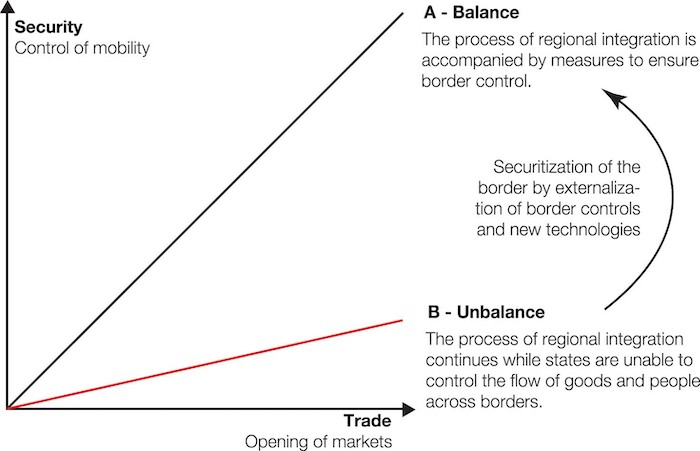
WALTHER – Security and Trade in African Borderlands-An Introduction
Olivier Walther
Article first published online: 08 Mar 2022
DOI: https://doi.org/10.1080/08865655.2022.2049350
ABSTRACT:
The goal of this special issue is to explore the relationships that bind trade and security in African borderlands. Examples from the Horn, North, and West Africa suggest that African countries are in the difficult situation of having to pursue their regional integration efforts without having the resources or the willingness to control their borders. In other words, the process of regional economic integration is rarely accompanied by an effective securitization of borders, despite Western efforts to establish new border regimes. Technological transfers have marginally improved the ability of African states to monitor the transnational circulation of goods and people. Imported technologies have been instrumentalized by political elites and contested by border communities when they threatened local livelihoods. This integration process differs greatly from the model developed in Europe and North America, where a balance has been found between the opening of markets and control of mobility. It is increasingly challenged by violent religious groups who argue that modern nation-states are incompatible with religious law and that their borders are irrelevant to the community of believers.
Read the full publication at the Journal of Borderlands Studies